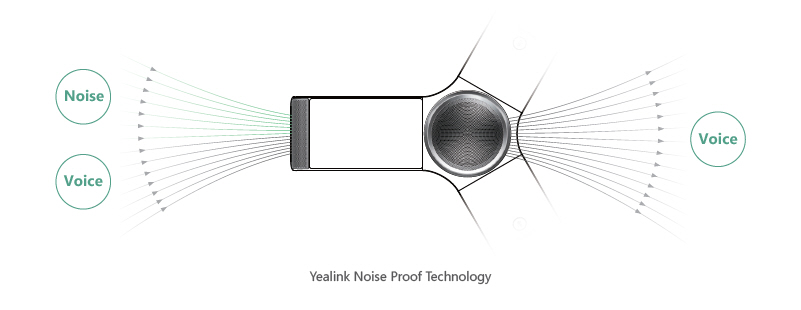Introduction
In an era where communication technology is evolving at lightning speed, deciding between traditional landline options and modern VoIP (Voice over Internet Protocol) solutions can feel like standing at a crossroads. The question isn’t just about which is better; it’s about understanding your needs, preferences, and the implications each option brings to the table. As we dive deep into “The Communication Revolution: Choosing Between VoIP and Landline Options,” this article aims to illuminate the intricacies of both methods, helping you make an informed decision.
VoIP Phone System: An Overview
What is VoIP?
VoIP stands for Voice over Internet Protocol. In simple terms, it allows you to make voice calls using the internet instead of traditional phone lines. This technology has gained popularity for its cost-effectiveness and flexibility. But what does that mean for you?
How Does VoIP Work?
VoIP converts your voice into data packets, sending them over the internet to the receiver. Unlike traditional landlines that rely on circuit-switched networks, VoIP uses packet-switched networks, offering significant advantages in efficiency.
Benefits of Using a VoIP Phone System
- Cost Efficiency: Lower monthly bills than traditional phone services. Flexibility: Make calls from anywhere with an internet connection. Scalability: Easily add or remove lines as your business grows.
Drawbacks of VoIP Systems
- Internet Dependency: A reliable internet connection is crucial. Power Outages: Without power, you may lose access to your phone service.
Landline Options: A Classic Choice
What are Landlines?
Landlines refer to traditional telephone services that use physical wires to transmit voice signals. They have been around for decades and are known for their reliability.

How Do Landlines Work?
Landlines operate through a system of switches that connect calls via a central office. Although they may lack some of the modern features offered by VoIP systems, many still appreciate their simplicity.

Advantages of Landline Phones
- Reliability: Less prone to outages compared to internet-based services. Quality of Service: Often deliver clearer audio quality during calls.
Disadvantages of Landline Services
- Higher Costs: Typically more expensive monthly fees compared to VoIP. Limited Features: Fewer additional features than those found in modern VoIP systems.
The Communication Revolution: Choosing Between VoIP and Landline Options
When discussing “The Communication Revolution: Choosing Between VoIP and Landline Options,” it becomes clear that both choices have their merits. However, making a choice involves evaluating specific factors such as:
Your budget Your communication needs The size of your household or business The reliability of local internet connections
By considering these elements, individuals can determine which option aligns best with their lifestyle or business operations.
Key Comparisons between VoIP and Landline Systems
| Feature | VoIP Phone System | Landline | |-----------------------|---------------------------|-------------------------| | Cost | Usually lower | Generally higher | | Flexibility https://soundcurve.com/voip-phone-service-walnut-ca/ | High | Limited | | Call Quality | Can vary | Generally consistent | | Additional Features | Many available | Few | | Setup Complexity | Moderate | Simple |
Making a Decision: Factors to Consider
1. Budget Considerations
When evaluating “The Communication Revolution: Choosing Between VoIP and Landline Options,” one must seriously consider budget constraints. With monthly fees often cheaper with a VoIP system, many businesses find this solution appealing.
2. Usage Patterns
How often do you use your phone? If you're making frequent long-distance calls or need international calling capabilities, a VoIP Phone System might save you a bundle.
3. Availability of High-Speed Internet
VoIP relies heavily on stable high-speed internet connections; therefore, if your area struggles with connectivity issues or slow speeds, a landline could be more reliable.
FAQs About Choosing Between VoIP and Landline Options
Q1: Is VoIP better than landlines?
A1: It depends on your needs! While VoIP offers greater cost savings and flexibility, landlines provide reliability especially in areas with poor internet connectivity.
Q2: Can I keep my phone number if I switch to VoIP?
A2: Yes! Most providers allow you to port your existing number when transitioning from traditional landlines.
Q3: What equipment do I need for a VoIP Phone System?
A3: You’ll typically need an Internet connection, a compatible device (like a computer or dedicated IP phone), and possibly an adapter if you’re using existing phones.
Q4: Are there hidden fees with either option?
A4: Both systems can have hidden fees; it’s essential to read the fine print when signing up for service contracts.

Q5: Can I use my smartphone with a VoIP service?
A5: Absolutely! Many providers offer mobile applications that let you make calls using Wi-Fi directly from your smartphone.
Q6: What happens during power outages with both options?
A6: Landlines usually continue working during outages unless there’s an issue with the line itself; however, most VoIP systems will not function without power or internet access.
Exploring Advanced Features in Modern Communication Technologies
As we delve deeper into “The Communication Revolution: Choosing Between VoIP and Landline Options,” understanding advanced features becomes crucial in making an informed choice between these two communication forms.
Cutting-edge Features Offered by Modern VoIP Systems
Video Conferencing Capabilities- Engage face-to-face in real-time through video calls.
- Redirect calls seamlessly according to your availability.
- Access voicemails through email transcription for easy reference.
- Use your mobile device as part of your office communication system regardless of location.
Traditional Features Found in Landline Services
While many users gravitate towards modern technology's allure, some classic features still stand strong:
Emergency Services Access- Directly linked emergency services can be crucial during crises.
- Easy setup without complicated devices or configurations needed.
- High-quality sound without interruptions due to network issues.
Conclusion
In summary, navigating through “The Communication Revolution: Choosing Between VoIP and Landline Options” is no cakewalk but knowing what each option provides can guide you toward making the right choice for yourself or your organization. Factors like budget constraints, usage patterns, and reliability play pivotal roles in this decision-making process—so take time to assess what matters most!
Whether you opt for the agile nature of a VoIP Phone System, embracing all its forward-thinking capabilities or stick with the tried-and-tested reliability of good ol’ landlines remains entirely up to you! Whatever path you choose will undoubtedly lead toward enhanced communication experiences tailored just for YOU!